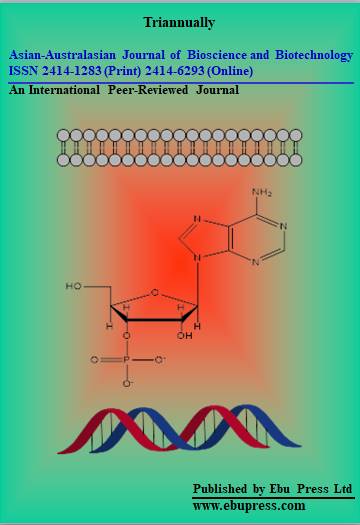Md. Abdul Jalil, Farzana Fiza Rahima, Anirudha Paul Shirshaw, Nahida Akter, Md. Taslim Hossain and S. M. Khaledur Rahman
Abstract
PDF
Probiotic-based food items are functional foods that offer health benefits to the host. This study aimed to develop probiotic products—apple juice, orange juice, and UHT milk—by incorporating locally identified bacterial strains as mediums for probiotic consumption. The hypothesis was that microencapsulation would enhance probiotic viability during storage. Probiotic microorganisms (Enterococcus faecium and Pediococcus acidilactici) were microencapsulated using chitosan and a 2% sodium alginate solution via extrusion from July 2018 to December 2022 in the laboratory of Biotechnology and Genetic Engineering Discipline of Khulna University, Bangladesh. Both free (non-encapsulated) and microencapsulated strains were used to inoculate laboratory-prepared apple juice, orange juice, and UHT milk. These products were stored at room temperature and 4 °C for four weeks and monitored for chemical (pH) and microbiological changes. By day 28, the pH of apple juice, orange juice, and UHT milk inoculated with encapsulated probiotic organisms remained higher than in those with free probiotics. The pH of products stored at room temperature declined more than those stored at 4 °C over the 28-day period. Overall, microencapsulated probiotic bacteria outlived the free probiotic bacteria across all storage conditions. Free probiotic bacteria remained viable up to 7 days at room temperature and 14 days at 4 °C, while microencapsulated bacteria remained viable up to 14 days at room temperature and 28 days at 4 °C. Among the products, UHT milk supported the highest viability of probiotic bacteria during storage at both temperatures. Between juices, apple juice showed slightly better bacterial survival than orange juice. The results confirm that microencapsulation enhances probiotic viability during storage. These findings support the development of functional probiotic beverages from apple juice, orange juice, and UHT milk using native strains, offering practical implications for improving public health through non-dairy probiotic delivery systems.



